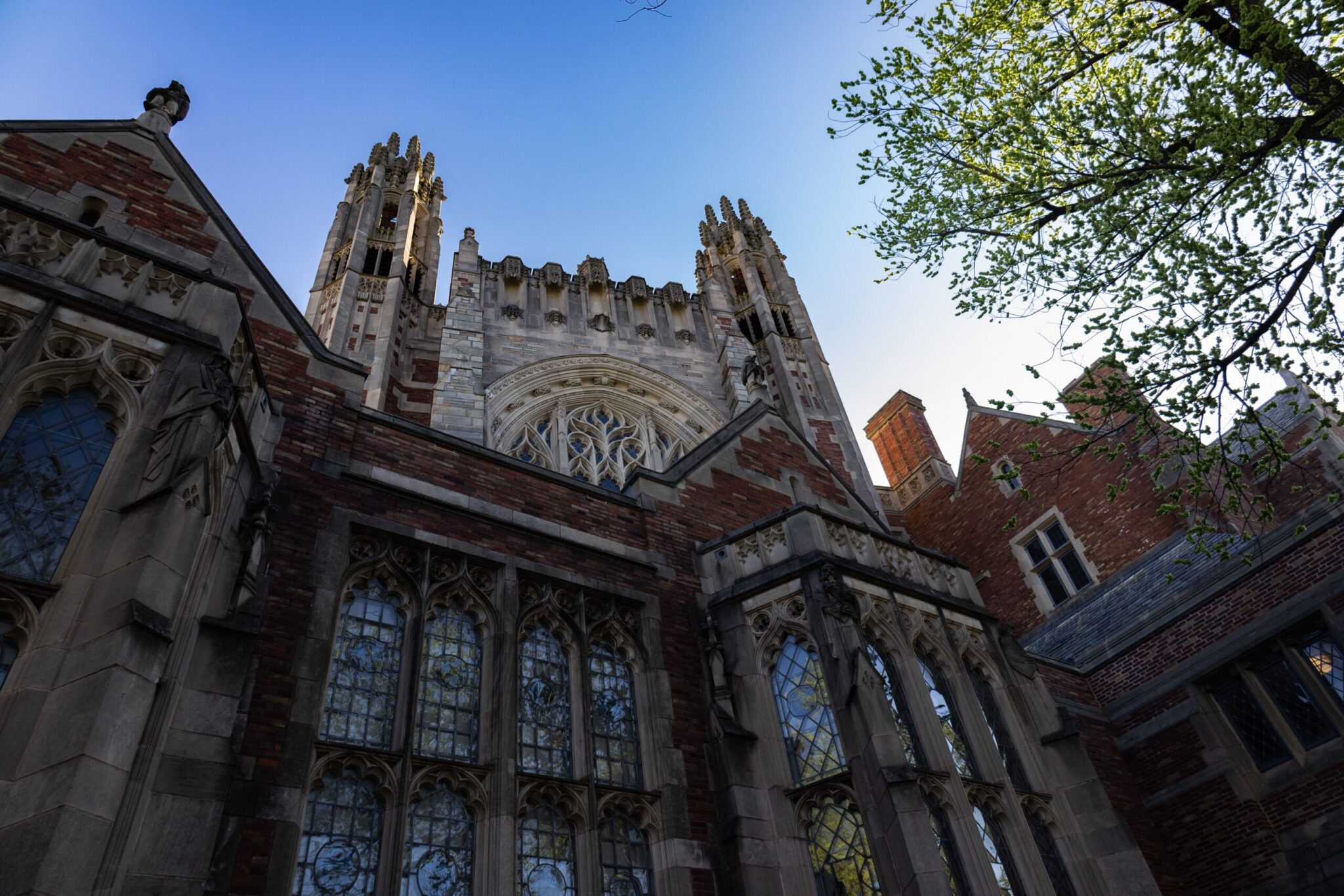Law School clinic files lawsuit against gift card makers, alleging insecure cardboard packaging
Students in Yale Law School’s San Francisco Affirmative Litigation Project helped file suit against InComm Financial Services, alleging that the company was aware of security issues with their Vanilla gift cards for over a decade.

Zoe Berg, Senior Photographer
Students in Yale Law School’s San Francisco Affirmative Litigation Project, or SFALP, clinic helped file suit against the Georgia-based company InComm Financial Services and its partner banks, alleging unfair and deceptive practices.
The complaint, filed in late November, alleges that the company’s Vanilla cards — preloaded gift cards with set monetary value which are often sold by retailers such as Mastercard or Visa — are susceptible to “rampant card draining” due to insecure cardboard packaging. Card draining is a practice where a scammer obtains the Vanilla card number from beneath the packaging, resealing the card and subsequently spending the balance as soon as it is activated by the consumer, resulting in numerous “unauthorized transactions.”
In the complaint, SFALP along with the San Francisco City Attorney’s Office claim that Incomm has known about the cards’ security problems for over a decade but has done nothing to fix the issue or provide refunds to consumers who were affected by the issue.
“Incomm’s negligence has opened the door for scammers to defraud thousands of consumers,” said San Francisco Attorney David Chiu when announcing the lawsuit on Nov. 20. “To add insult to injury, Incomm regularly refuses, in violation of state law, to refund consumers who are scammed out of their money as a result of Vanilla gift card draining.”
According to the complaint, despite state laws that limit consumer liability and require refunds of unauthorized transactions, Incomm often refuses to offer refunds to individuals who have been scammed.
SFALP also claimed that they found many consumers never heard back from the company or were placed on hold for hours with no response.
“Over the past decade, numerous Vanilla cardholders have had their money unsuspectingly stolen from their non reloadable Vanilla debit cards,” the complaint reads. “These losses are a direct result of Incomm’s insufficient security features for its non reloadable Vanilla debit cards, which are sold in cardboard sleeves that thieves can easily open and reseal after taking a given card’s numbers.”
When asked to respond to the lawsuit, a spokesperson for InComm provided a statement to ABC7 San Francisco saying that fraud prevention is a “top priority” for them.
The statement also said that they are “continuously collaborat[ing]” with security experts, merchant partners and law enforcement to combat emerging threats.
“While we do not comment on active litigation, we understand that fraud is an upsetting and stressful experience for our customers, and we are committed to minimizing its occurrence and providing our customers with prompt and satisfactory assistance when it does occur,” the InComm statement read.
Deputy City Attorney David Louk LAW ’15, who was one of the lead attorneys on the case, said he was excited to work with SFALP students as a part of the affirmative litigation team on the case.
Louk, who participated in the clinic as a student, recalled his experience drafting a complaint for the Office in an interview with the News. During his time with SFALP, he said he gained insights into the affirmative litigation team’s innovative approach to crafting lawsuits to address and solve real-world issues.
“My time in SFALP was so formative in shaping my interests and skills as a budding lawyer,” Louk said. “Now that I’m ‘on the other side’, it’s incredibly gratifying to pay it forward and mentor and support the next generation of exceptional public interest lawyers through the SFALP clinic.”
One Law School student, Lorena Essak-Hernandez LAW ’25, told the News that the attorneys have actively engaged the students throughout the case, involving them in different aspects, from drafting the complaint to strategizing for litigation.
Essak-Hernandez, who worked on the case with Isabelle Zaslavsky LAW ’24 and Otelo Reggy-Beane LAW ’25, added that she was “very glad” that SFALP was working hard to keep the company accountable.
“This case is extremely important to consumers throughout the country because these cards are so widely used,” Essak-Hernandez wrote in an email to the News. “I have personally seen them given as gifts at birthdays, weddings, and holidays. It is unfair and upsetting that these cards are so frequently stolen from, and even more upsetting that the company is aware of the rampant fraud that occurs with these cards.”
SFALP is run by director Emma Sokoloff-Rubin ’11 LAW ’18 and Law School Dean Heather Gerken, who founded the clinic in 2006. Under the supervision of deputy attorneys in San Francisco, students in the clinic work on affirmative lawsuits involving consumer protection, worker’s rights, the environment, public health and other aspects of the law.
Sokoloff-Rubin said students in the clinic also participate in a seminar focused on affirmative litigation by state and local governments, federalism and the core ethical and strategic considerations facing government lawyers today.
“Each student works on one matter per semester, and we work on cases in all different substantive areas and stages of litigation,” Sokoloff-Rubin told the News. “Students build core legal research and writing skills while contributing to lawsuits that protect consumers in California and often across the country.”
SFALP has also filed suit against companies making online sales of prohibited flavored tobacco products and e-cigarettes in San Francisco, the first U.S. city to ban e-cigarette sales.







